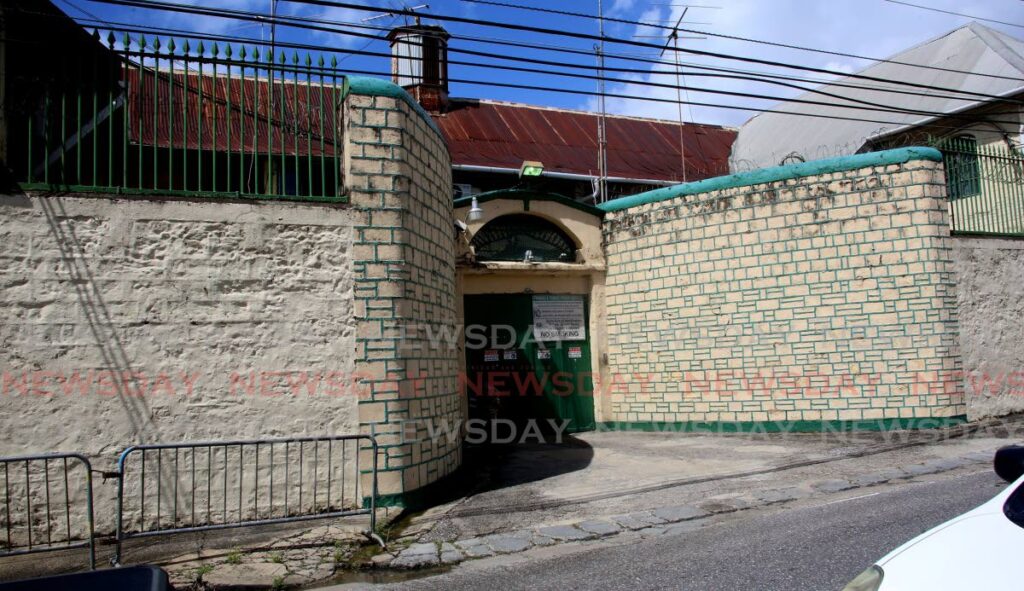Former remandee: Treat prisoners like human beings

TREATING remand prisoners like human beings and improving the conditions under which they are kept in the prison system, could reform at least 70 per cent of them and avoid the risk of them being released into society as hardened criminals.
Former remandee Nicholas Ali expressed this view when he participated in a webinar hosted by the University of the West Indies (UWI) on human rights abuses of remand prisoners on Thursday.
Also addressing the webinar were Law Association president Sophia Chote, SC, and former prisons commissioner Gerard Wilson.
Chote related personal experiences as an attorney where a remandee, who was her client, died in prison while waiting for his matter to be heard in court. Wilson reflected on funding challenges the prison service faces and his own experiences as commissioner, where he faced opposition from some prison officers for his views on how inmates should be treated.
Ali said many people forget prisoners are human beings first.
"If these prisoners see love, three quarters of them will change. Ali was imprisoned when he was 21 years.
"In my eyes and in the sight of the law, I always considered myself to be innocent because I didn't do anybody anything. I was just there at the point in time."
He related times he was placed in a small cell with ten other prisoners, where he had to stand up if he wanted to change his sleeping position.
"How could we expect any human being to change living under those sorts of conditions."
Ali empathised with the families of people on remand who have been waiting years for their matters to be heard in court.
"How can you take 12 and 15 years to torture these families through a court procedure?"
He said he was released from prison when he was 34.
"If a man on remand does not seek change for himself, it will not come."
Ali remembered after being in prison for three years, he wanted to plead guilty even though he maintained his innocence. He said convicted prisoners have many more privileges than remand prisoners.
"They could learn a trade. They could even learn to read and write if they choose to. A remanded man is denied those privileges."
Ali added, this was so because remandees chose not to plead guilty to whatever crimes they were charged with. He remembered going to court for nine years just waiting for his matter to be heard and it eventually was in 2015.
Life in remand is very difficult and many people mistakenly believe that prisoners are well treated."
Ali said, “No, it is not like that. Some of these men prefer to be put to death because, I believe, oppression is worse than death."
Owing to the physical conditions they live under and how they are treated in prison, Ali said many remandees build a hatred for society and could unleash it upon other people whenever they are eventually released.
Chote said she once represented a Venezuelan named Jose who was placed in remand on drug charges. While waiting for his matter to be heard in court, he had a medical ailment in prison and subsequently died.
"His punishment before conviction was death."
Noting human rights abuses in remand is not a new issue, Chote said Parliament has dealt with separate reports on the matter in 2002 and in 2017. She lamented not much appears to have been done to address the issue to date.
Chote also questioned whether some people who fail to join the police service seek to join the prison service as an alternative. She wondered whether some prison officers were simply functioning as guards.
Wilson agreed with Chote that there were such people in the prison service. He recalled in his tenure as a prisons officer initially being aggressive towards inmates until he learnt what his role was. Wilson said that role was to serve inmates and not to "behave like a police (officer)."
He also said as commissioner, he always sought to ensure that inmates and their families received humane treatment at all times. Wilson recalled the opposition he got as a result of that. "I got a lot of flack from my officers." He also said compared to other arms of national security, the prison service often does not get the funding it needs from successive governments because it is not seen as something that will bring them votes.
Journalist Debbie Jacob noted the Port of Spain prison was built in 1812 and there were times rats came up from the sewer when it flooded. She said when prisoners needed to use a bathroom, all they got was a bucket and newspaper.
UWI pro vice-chancellor (graduate studies and research) Prof Rose-Marie Belle Antoine said the Prime Minister was among many people who recently expressed concern about the state of the criminal justice system. She said people in remand are those who have not yet been found guilty of any crime and society is largely apathetic to this situation.
"There is a wall of silence. We have to make the system more accountable."


Comments
"Former remandee: Treat prisoners like human beings"